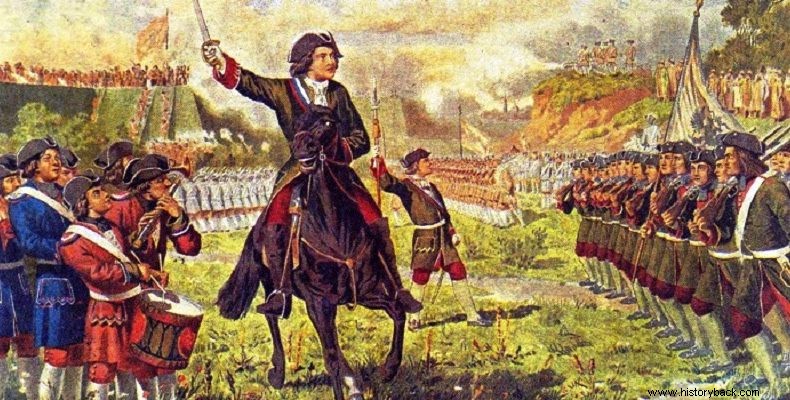
The death of the Tsar of Russia Feodor III in 1682 caused a political crisis in the country. The Streltsi revolted and the young Prince Peter, the later Great, saw his relatives slaughtered before his eyes. His sister Sophia took over the reins of the state with her supporters. Peter was sent to Preobrazhensky near Moscow.
It was there that Peter began to assemble an army of living "little soldiers" , the "Great Fun" army. This army was made up of Peter's friends, but also of servants and a few soldiers.
Peter's army was organized into companies of 100 men and formed the basis for the formation of the famous Semyonovsky and Preobrazhensky regiments of the later tsarist guard a from the names of the homonymous villages where they were formed.
In 1685, the 13-year-old Petros enlisted foreign officers in his army to train his "child" army. Petros, shaking the Streltsi who supported his sister and her lover on the throne, he intended to create a military force loyal to him. At the same time, under the guidance of the Dark officer Patrick Gordon, he was also training in the military.
Peter's infant army had divisions of cavalry, infantry and artillery and fought "battles", besieging purpose-built fortresses and getting used to Western military discipline, order and manner of fighting.
The children who enlisted in the children's army were aged nine and over and exercised daily. Those from the age of 12 and above were also trained in weapons. Petros himself at the age of 12 when he could handle a gun.
The children and men of the children's army obeyed only Peter. In 1691 the two regiments which had been formed from Peter's children's army, officially joined the Russian army and since then they continued to fight for the Russian flag until 1917. They were disbanded by the communist regime, but regrouped relatively recently and continue a centuries-old tradition.
The two regiments fought in the battle of Narva, in 1700, heroically , so heroically that they earned the respect of their Swedish rivals. Since then they have fought in all the conflicts in which Russia has participated. They distinguished themselves especially in the wars against the Turks, but also against Napoleon later.
